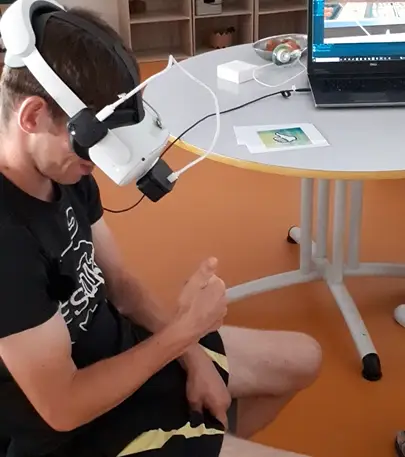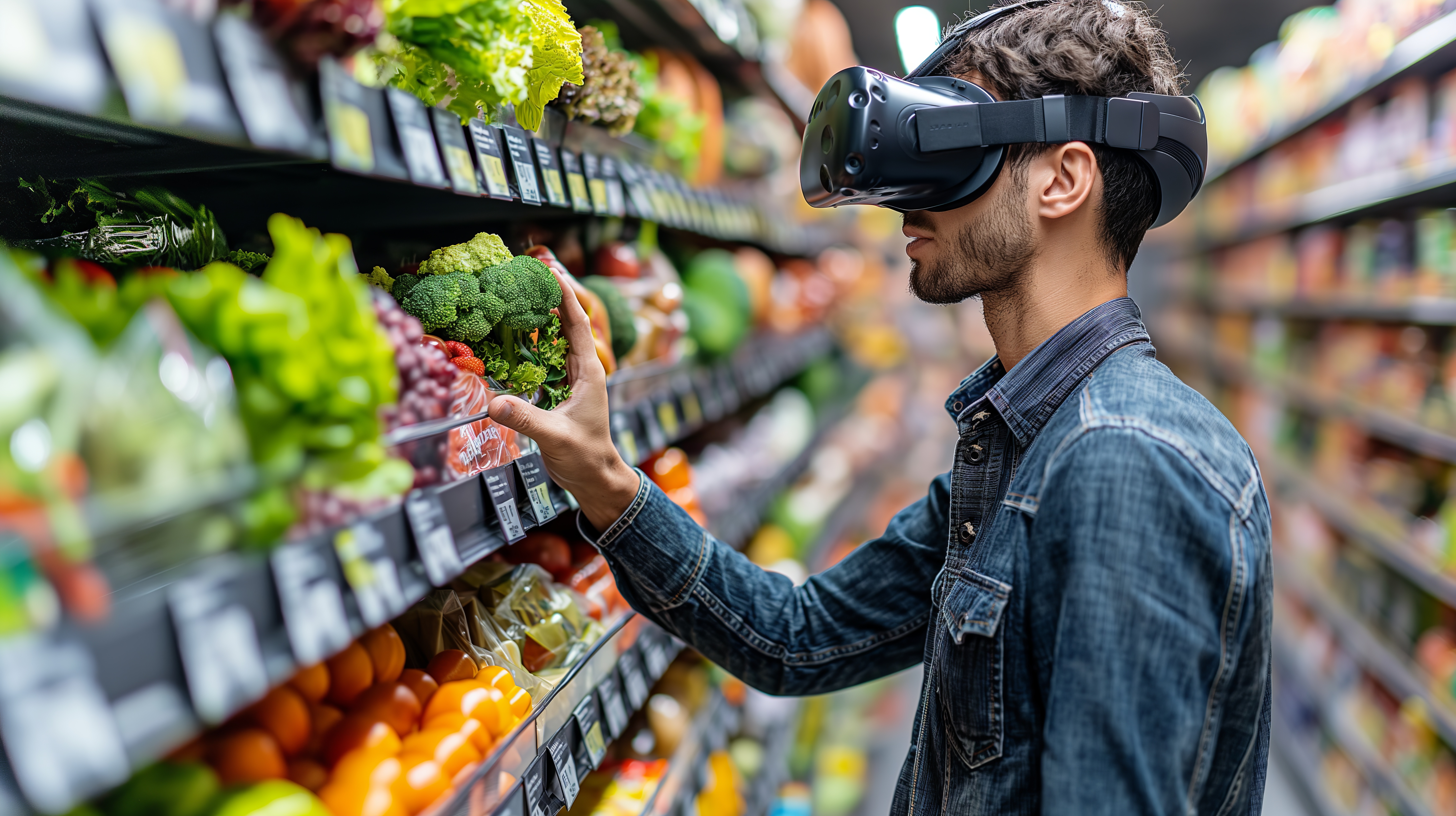Promoting independence among young adults with autism through olfactory virtual reality
An ambitious and inclusive research project
We had the honour of collaborating with the Nantes Education Research Centre (CREN)and the Angers Laboratory for Research in Systems Engineering (LARIS) on an innovative project for young adults with autism. In partnership with La Résidence sociale, the research teams have developed developmental virtual reality tools to stimulate the acquisition of essential skills related to independence and social participation.
A suitable and secure learning environment
Why virtual reality?
The choice of virtual reality for this support is based on several fundamental advantages:
- Reduction of distracting stimuli: The VR headset provides an anthropocentric environment, free from anxiety-inducing sounds and lights, which promotes concentration and learning.
- Total safety: Simulation makes it possible to reproduce everyday situations that are sometimes difficult to experience safely in the real environment.
- Adapted progression: The ability to adjust the complexity of scenarios according to each participant's level of progress.
- Infinite repetition: A predictable and reassuring environment that allows for the gradual and iterative acquisition of the actions to be taken.
The experiment was co-designed collaboratively with researchers, with the active participation of social education professionals and the users themselves, in an iterative process ensuring the relevance of the scenarios for the acquisition of domestic and social skills.
The virtual supermarket experience
An enriched familiar environment
Researchers have created a complete virtual supermarket using the Unity3D development tool. In this environment, participants can move around freely and perform several tasks typical of a shopping trip: selecting the items they want to buy, placing the selected products in a basket, and learning how to navigate from the shelves to the checkout.
The contribution of the olfactory dimension
This is where our technology comes in to greatly enhance the experience. In the fruit and vegetable section, in particular, our device briefly diffuses natural scents when participants approach or pick up a product. The orange and apple fragrances, created by our partner laboratory Cinquième Sens, are released at the moment of interaction, adding a sensory dimension that potentially enhances user engagement.
This optional olfactory dimension allows participants who wish to do so to enjoy a complete multisensory experience, reinforcing memory retention and the realism of the simulation.
Encouraging results
Impact on wellbeing and engagement
The initial results of this experiment are particularly promising in terms of well-being and engagement in learning activities. One striking testimony illustrates this impact: a young participant spontaneously shared that the scents made him want to return to these products, demonstrating our technology's ability to create an authentic emotional and behavioural connection. In this experiment, the scents were chosen in advance with the users themselves, according to their own preferences and sensitivities.

©projet Participe 3.0.
Promoting independence in everyday life
Beyond the supermarket, the project explores other everyday situations: virtual cooking to learn how to use equipment safely, travelling around town, and other scenarios essential to developing independence. Each virtual reality capsule is designed to appeal to the interests of young participants and encourage the gradual acquisition of skills that can be transferred to the real world.
Our commitment to sensory accessibility
This collaboration perfectly illustrates our belief that virtual reality olfactory technology can make certain perceptions more accessible and promote the memorisation of life experiences. By adding the olfactory dimension to virtual worlds, we are helping to create more comprehensive and effective educational tools. We are determined to continue exploring the possibilities offered by the integration of olfaction into virtual reality, particularly in the field of health and support for people with disabilities.
We would like to extend our warmest thanks to the LARIS laboratory (University of Angers), the CREN (University of Nantes), La Résidence sociale, and the researchers involved: Paul Richard, Patrice Bourdon and Cécile Lacôte-Coquereau for their trust and valuable collaboration in this meaningful experiment. We would also like to thank all the students at Polytech Angers who worked on this innovative project.
If you would like to find out more:
Participe 3.0: towards inclusive shared housing and independence
- Lacôte-Coquereau, C., & Richard, P. (2024). Medical Applications of Virtual Reality (chap. 9, pp. 571-574). In G. C. Burdea & P. Coiffet, Virtual Reality Technology (3rd ed.). Wiley-IEEE Press.
- Lacôte-Coquereau, C., Richard, P., Richard, E., & Bourdon, P. (2024). Virtual Reality and Autism Spectrum Disorder: Emergence of Sensory-Motor and Olfactory Potentialities in an Anthropocentric Epistemological Approach. Proceedings of the 19th International Joint Conference on Computer Vision, Imaging and Computer Graphics Theory and Applications, 484-491.
